ICAS has enviable track records of working for government, NGOs both local and international, donors, and donor supported programmes.
 J2024: Ladies Empowerment Goals and Support Initiative (LEGASI): Development of 5 Year Plan of Action and Review of key Policy documents
J2024: Ladies Empowerment Goals and Support Initiative (LEGASI): Development of 5 Year Plan of Action and Review of key Policy documents
In July 2024, ICAS designed and implemented a 5-day strategic thinking session hinged on Strategic Development Framework and Organisational Development Models leading to the preparation of a 5-year strategic plan of Action for LEGASI. The strategic plan of action comprises of clarification of organisational vision, mission and core values and development of results framework and operational plan. ICAS also reviewed and developed personnel policy, procurement policy, financial policy as well as development of organisational profile.
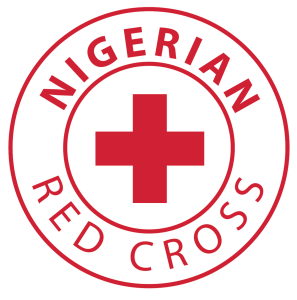 2023: NRSC training on Managing for Results, Procurement and Financial Management for Non-for-Profit Organisations (Pictures)
2023: NRSC training on Managing for Results, Procurement and Financial Management for Non-for-Profit Organisations (Pictures)
In April 2023, ICAS designed and delivered training support in strengthening of financial management through deepening of various financial models applicable to humanitarian and development contexts as well as enhancing result-based management system through construction of problem and objective tree analysis.
 2022: NCRS/IRCS Humanitarian Needs Assessment for Hunger Crisis Project
2022: NCRS/IRCS Humanitarian Needs Assessment for Hunger Crisis Project
September 2022:Provided technical input to Nigeria Red cross Society (NRCS) and International Federation of Red Cross and Red Crescent Societies (IFRC) in the design and implementation of Humanitarian Needs Assessment framework hinged on prevention, humanitarian, and recovery response measures in addressing hunger crisis fueled by humanitarian conflict crisis and disaster in proposed FCT and 4 states (Zamfara, Kaduna. Kano and Jigawa) to implement Hunger Crisis project
 July 22:Provided technical input to Nigeria Red cross Society (NRCS) and International Federation of Red Cross and Red Crescent Societies (IFRC) in the design and implementation of Humanitarian Needs Assessment framework hinged on prevention, humanitarian, and recovery response measures in addressing hunger crisis fueled by humanitarian conflict crisis and disaster in old states (Benue, Katsina, Nassarawa, Niger, Sokoto and Kebbi) implementing Hunger Crisis project Nigeria.
July 22:Provided technical input to Nigeria Red cross Society (NRCS) and International Federation of Red Cross and Red Crescent Societies (IFRC) in the design and implementation of Humanitarian Needs Assessment framework hinged on prevention, humanitarian, and recovery response measures in addressing hunger crisis fueled by humanitarian conflict crisis and disaster in old states (Benue, Katsina, Nassarawa, Niger, Sokoto and Kebbi) implementing Hunger Crisis project Nigeria.
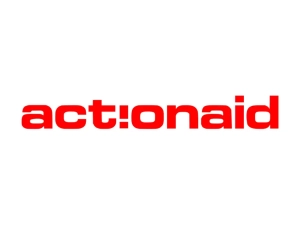 2022: Action Aid Nigeria SARVE 111 Baseline Study
2022: Action Aid Nigeria SARVE 111 Baseline Study
ICAS provided technical input in the design, coordination, and implementation of the SARVE 111 project baseline study in Kano and Kaduna States from 21 April – June 16, 2022. The aim is to support the Kano and Kaduna “System and Structure Strengthening Approach Against Radicalization to Violent Extremism (SARVE) III Project” in its planning and evaluation of impacts in the intervening Local Government Areas (LGAs) and communities. The study focuses on Global Community Engagement Resilience Fund (GCERF) Strategy’s four leverage points. It covers the indicators contained in the results framework developed by ActionAid Nigeria (AAN) and its stakeholders to track the progress of programme implementation including impacts. The Knowledge, Attitude and Practice (KAP) baseline study is a product of mixed research methods and analysis involving desk review, quantitative and qualitative methods intended to complement one another and bring about credible and reliable data or information. Baseline study has facilitated initial understanding of KAP premised on GCERF strategy of 4 leverage points as well as the indicators of results framework. It has also addressed the four objectives of the study. Therefore, the baseline data serves as a useful reference or benchmark for subsequent review and evaluation of the SARVE III project. In addition, it also provides the right compass for setting performance target and designing a mix of interventions or strategies ahead of the full implementation of SARVE project III.
![]() March 2022: ADDA Girl Education Foundation (ADEF) Baseline Study in Nafada LGA, Gombe State
March 2022: ADDA Girl Education Foundation (ADEF) Baseline Study in Nafada LGA, Gombe State
ICAS provided technical input in the design, coordination, and implementation of baseline study in Nafada LGA in Gombe State for ADDA Girl Education Foundation (AGEF) from 1 – 10 March 2002. The baseline study is a product of mix research methods. The aim is to generate information or data on AGEF results framework indicators that will support programme planning as well as evaluation of impacts in the intervening communities. The study focuses on access to quality education by a girl child and rising from cradle to a strategic leadership position.
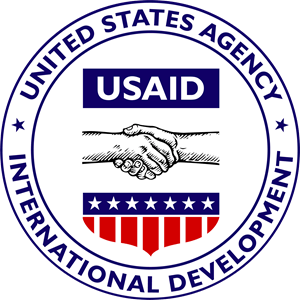 December 2017: USAID R4D Project: Assessment of Non-State Private and Primary Schools
December 2017: USAID R4D Project: Assessment of Non-State Private and Primary Schools
In 2011, USAID commissioned a six-country study to assess the growth trends and needs of private primary and secondary schools, debates surrounding nongovernment schools, and recommendations about the approach that national and international public agencies should take regarding this sector. ICAS as in country research coordinator, specific responsibilities involved, the review of research methods paper, research protocol; field research team recruitment and coordination; arranging and participating in the conduct of interviews with key government officials responsible for non-state schools and management staff of selected non state schools; support to field data analysis and reporting through identifying and sourcing useful secondary data and finally making inputs to the draft report towards its finalization
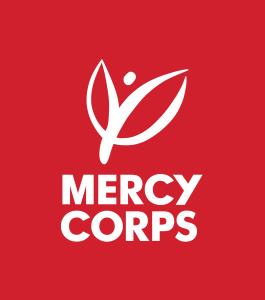 2009 – 2017 Mercy Corps:
2009 – 2017 Mercy Corps:
November 2017: Mercy Corps Goal 2 End Line Assessment: ICAS designed and implemented Girls’ Opportunity for Advancing Literacy 2 (GOAL 2) end line assessment. GOAL 2 project came to an end in December 2017. The end line assessment premised on beneficiaries’ assessment at the level of institutions (policy and implementing agencies) and the ultimate beneficiaries (adolescent girls 15 – 19 years of age). Mixed methods research design was used in gathering data. The objectives of the end line assessment are:
- To analyse the extent of achievements of the log frame. To what extent were the assumptions in the log frame realistic?
- To determine whether GOAL 2 has made a difference and if yes, what factors have contributed? If no, what factors must be responsible?
- To what extent have GOAL 2 initiatives sustainable? What is evidence of potential scalability and replicability of GOAL 2 initiatives?
- What are the key lessons and recommendations for implementing future programme of this nature?
 October 2016: Mercy Corps Labour Market Assessment:ICAS designed and conducted LMA for Mercy Corps partnering with the Coca-Cola Africa Foundation. The aim is to design, launch and scale the Youth Empowered for Success (YES!) Program, a new initiative to create sustainable, safe, equitable, and productive jobs for youth (ages 18-35 with a focus on the age group of 18 – 24) by enabling youths across Africa to access new economic opportunities including jobs, skills training, mentorship, and financial services. The program will be implemented in six African countries – Kenya, Tunisia, Uganda, Liberia, Nigeria, and South Africa. The purpose of Labor Market Assessment (LMA) and youth insights in Nigeria is to glean on the findings from the assessment to inform YES! And other youth programs design and implementation. Specifically, the youth led LMA, and youth insights have four immediate outcomes: identify economic opportunities for youth; understand youth needs, wants and capabilities; and uncover youth insights and provide key recommendations. The LMA combined mix methods involving desk review, survey and qualitative. In addition, respondents spread across formal and informal economy as well as public sector.
October 2016: Mercy Corps Labour Market Assessment:ICAS designed and conducted LMA for Mercy Corps partnering with the Coca-Cola Africa Foundation. The aim is to design, launch and scale the Youth Empowered for Success (YES!) Program, a new initiative to create sustainable, safe, equitable, and productive jobs for youth (ages 18-35 with a focus on the age group of 18 – 24) by enabling youths across Africa to access new economic opportunities including jobs, skills training, mentorship, and financial services. The program will be implemented in six African countries – Kenya, Tunisia, Uganda, Liberia, Nigeria, and South Africa. The purpose of Labor Market Assessment (LMA) and youth insights in Nigeria is to glean on the findings from the assessment to inform YES! And other youth programs design and implementation. Specifically, the youth led LMA, and youth insights have four immediate outcomes: identify economic opportunities for youth; understand youth needs, wants and capabilities; and uncover youth insights and provide key recommendations. The LMA combined mix methods involving desk review, survey and qualitative. In addition, respondents spread across formal and informal economy as well as public sector.
 Dec 16 – 17, 2015: Policy and Private Sector Engagement Consultant:Facilitated private sector engagement using findings from school to work assessment research conducted with GOAL Project beneficiaries to foster partnership and linkages in the value chain.
Dec 16 – 17, 2015: Policy and Private Sector Engagement Consultant:Facilitated private sector engagement using findings from school to work assessment research conducted with GOAL Project beneficiaries to foster partnership and linkages in the value chain.
 Dec 14 – 15, 2015: Organisational Development Assessment Consultant:Deepen Institutional Capacity Assessment of Key Collaborative MDAs (MoE, KERD, KSSSMB) with Mercy Corps and Provided Specific Capacity development training to address the identified institutional capacity gaps.
Dec 14 – 15, 2015: Organisational Development Assessment Consultant:Deepen Institutional Capacity Assessment of Key Collaborative MDAs (MoE, KERD, KSSSMB) with Mercy Corps and Provided Specific Capacity development training to address the identified institutional capacity gaps.
 Nov 1 – 4 Dec 2015: School to Work Assessment Survey/SBMC Consultant:Coordinated and delivered on series of interventions on Mercy-GOAL Project including development of Counsellors’ Practical Training and Instruction Guide, SBMC training for the Executive Members and School to Work Assessment Survey.
Nov 1 – 4 Dec 2015: School to Work Assessment Survey/SBMC Consultant:Coordinated and delivered on series of interventions on Mercy-GOAL Project including development of Counsellors’ Practical Training and Instruction Guide, SBMC training for the Executive Members and School to Work Assessment Survey.
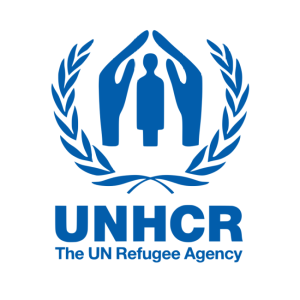 July 2017: UNCHR Multi Sector Market Assessment (MSMA)
July 2017: UNCHR Multi Sector Market Assessment (MSMA)
ICAS contributed to the design, coordination, and implementation of Multi Sector Market Assessment (MSMA). The aim was to assess the capacity of markets to respond to cash-based initiatives (CBI), including multi-purpose cash grants (MPG). The UNHCR Multi-Sector Market Assessment (MSMA) was piloted in Maiduguri Municipal Council (MMC), Jere and Konduga Local Government Areas (LGAs) of Borno State, Nigeria in July 2017. The MSMA was led by UNHCR and followed the Save the Children’s led Basic Needs Assessment (BNA) piloted in June 2017 in the same localities.
Market assessment objectives included:
- To assess whether the charcoal, core relief item, water and rental housing markets can supply effectively in response to a cash Based Intervention (CBI) with specific focus on Multi-Purpose Cash Grants (MPG).
- To pilot the UNHCR Multi-Sector Market Assessment Companion Guide and Toolkit (MSMA) and collect learning on how the MSMA could be improved.
 July 2017 Action Aid, LRP Project
July 2017 Action Aid, LRP Project
ICAS facilitated AAN Participatory Review and Reflection Process (PRRP) framework in 5 states (Bauchi, Kaduna, Kebbi, Kwara and Ondo). The analysis of findings and reporting was guided by AAN PRRP template to produce Local Rights Partner Strategy documents. The objectives of PPRP were to:
- Promote downward accountability to communities and stakeholders, and deepen their understanding of the way AAN works.
- Create platform for community participation in analysing and providing feedback on key issues that relate to AAN’s work in the communities including issues around rights, power, and change.
- To assess progress towards achievement of thematic objectives vis-à-vis CSP goals and “TAKE ACTION END POVERTY” priorities in line with ALPS and GMF/CMF &CHF requirements.
- To create platform for linkages between community-level issues and state-level policy framework through community-led advocacy.
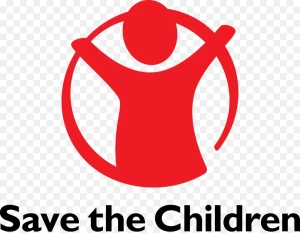 May 2017: Basic Needs Assessment (BNA) led by Save the Children UK
May 2017: Basic Needs Assessment (BNA) led by Save the Children UK
ICAS contributed to the design, coordination, and implementation of the Basic Needs Assessment in Borno state.The overall purpose of the Basic Needs Assessment (in short: BNA) was to assess the extent to which affected population groups (residents, IDPS in collective centre, IDPS in host families and IDPS in tents) in 3 LGAs of Borno states in Nigeria (Mafa, Jere and MMC) can meet their basic needs, and which response option would best meet their need. The BNA Assessment was led by Save Children UK
![]() 22 – 24 July 2016: Functional Review of Mainstream Energy Solution
22 – 24 July 2016: Functional Review of Mainstream Energy Solution
ICAS facilitated a Functional Review (FR) retreat from 22 – 24 July 2016 for Mainstream Energy Solution (MESL) with an overarching objective to position itself as the sector leader, fulfils its mandate, meet concession agreement, and ensure a healthy return to all stakeholder (Board, Staff, and host communities).The specific objectives of the MESL FR were:
- To review the organisational mandate.
- To review Vision, Mission and Core values.
- To review systems in terms of policies, tools, operational plans and strategies in line with organisational mandate.
- To determine evolutionary stage of the organisation and identify key priorities to the propel organisation to the next level.
- To develop a strategic framework for an agreed term (immediate, short, or long term).
The FR review adopted the following models: 1) Strategic Orientation 2) Top Management 3) Organisational design and 4) Organisational Culture.

April 2014: DFID SAVI
April 23 – 30, 2014:Application of Governance Baseline Index tool through focus group discussions with a cross section of Civil Society, MDAs, Media, and Legislators to determine baseline on quality governance in media, civil society organisations, MDAs, and legislature in Minna (Niger State).
 2013 – 2014: DFID SAVI: Governance Baseline and Mid Term Assessment
2013 – 2014: DFID SAVI: Governance Baseline and Mid Term Assessment
April 23 – 30, 2014: ICAS facilitated series of focus group discussion sessions with a cross section of Civil Society, MDAs, Media, and Legislators and applied SAVI Baseline Governance Assessment Index tool to determine the baseline situation on quality governance in media, civil society organizations, MDAs, and legislature spaces in Minna (Niger State)
 March 30 – 7 April 2014: ICAS facilitated series of focus group discussions across a cross section of Civil Society, MDAs, Media, and Legislators and applied SAVI Baseline Governance Assessment Index tool to determine the baseline situation on quality governance in media, civil society organizations, MDAs and legislature spaces in Awka (Anambra State)
March 30 – 7 April 2014: ICAS facilitated series of focus group discussions across a cross section of Civil Society, MDAs, Media, and Legislators and applied SAVI Baseline Governance Assessment Index tool to determine the baseline situation on quality governance in media, civil society organizations, MDAs and legislature spaces in Awka (Anambra State)
 April – May2013: ICAS facilitated mid-term progress review and applied SAVI Mid Term Governance and Accountability Assessment Index tool through a series of focus group discussions with a cross section of Enugu State Houses of Assembly, State and Local Government and Civil Society in tracking progress made towards quality of governance while also assessing progress made against project output and outcome indicators
April – May2013: ICAS facilitated mid-term progress review and applied SAVI Mid Term Governance and Accountability Assessment Index tool through a series of focus group discussions with a cross section of Enugu State Houses of Assembly, State and Local Government and Civil Society in tracking progress made towards quality of governance while also assessing progress made against project output and outcome indicators
 April 2012: ICAS facilitated mid-term progress review and applied SAVI Mid Term Governance and Accountability Assessment Index tool through a series of focus group discussions with a cross section of Kano State Houses of Assembly, State and Local Government and Civil Society in tracking progress made towards quality of governance while also assessing progress made against project output and outcome indicators
April 2012: ICAS facilitated mid-term progress review and applied SAVI Mid Term Governance and Accountability Assessment Index tool through a series of focus group discussions with a cross section of Kano State Houses of Assembly, State and Local Government and Civil Society in tracking progress made towards quality of governance while also assessing progress made against project output and outcome indicators
 Jan 7 – 10, 2009: ICASfacilitated team building (team building exercises, basic organizational development concepts, project strategy including log frame) (Lagos SAVI Project)
Jan 7 – 10, 2009: ICASfacilitated team building (team building exercises, basic organizational development concepts, project strategy including log frame) (Lagos SAVI Project)
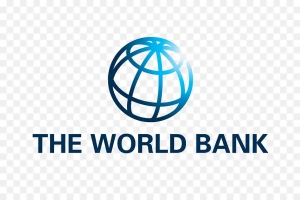 May 2013: WB/Bauchi Malaria Control Booster Project (BMCBP)
May 2013: WB/Bauchi Malaria Control Booster Project (BMCBP)
ICAS provided technical support to the design, coordination, and implementation of Community Directed Intervention (CDI) Process for Bauchi Malaria Control Booster Project (BMCBP) supported by the WB. ICAS support range from targeted advocacies to Local Government councils (LGCs), traditional institutions; training/capacity building of key implementers at State, LGA, and Health Facilities (HF) level; identification of volunteers for local level roll out; community entry and identification of CORPs and training of CORPS on CDI process. The CDI was implemented from 2010 to 2013 in 6 LGAs.
 2010 – 2013: WB/Gombe State Malaria Control Booster Project (GMCBP)
2010 – 2013: WB/Gombe State Malaria Control Booster Project (GMCBP)
ICAS provided technical support to the design, coordination, and implementation of Community Directed Intervention (CDI) Process for GMCBP supported by the WB. ICAS support range from targeted advocacies to Local Government councils (LGCs), traditional institutions; training/capacity building of key implementers at State, LGA, and Health Facilities (HF) level; identification of volunteers for local level roll out; community entry and identification of CORPs and training of CORPS on CDI process. The CDI was implemented from 2010 to 2013 in 11 LGAs namely: Dukku, Funakaye, Kwami and Nafada LGAs while the second tranche held from 28 – 31 May 2013 across Akko, Balanga, Billiri, Gombe, Kaltungo, Shongom and Yamaltu – Deba.
 March 2011: WB/GMCBP
March 2011: WB/GMCBP
ICAS contributed to the design and development of a statewide survey of primary health facilities, communities, kindred, and patent medicine vendors while provided lead in the coordination and implementation of field survey, recruitment and training of enumerators, data clerks and supervisors, data entry, cleaning, and storage of the data set throughout the survey. Further lead in the analysis and reporting of the data. Anecdotal evidence exist that the survey is the best among the seven World Bank supported Malaria Booster Projects.
 2010: WB/Bauchi State Malaria Control Booster Project (BMCBP)
2010: WB/Bauchi State Malaria Control Booster Project (BMCBP)
ICAS designed and implemented Baseline situation analysis of existing Monitoring & Evaluation (M&E) of Bauchi State Malaria Control Booster Project (BMCBP) carried out in the month of March 2010 in six Local Government Areas (LGAs) across the three senatorial zones of Bauchi State. This is a key step towards strengthening M&E system for BMCBP, a key deliverable for Innovative Consultancy & Agricultural Services (ICAS), the M&E Project Implementation Facilitator (PIF) for the project.
 2009 – 2010: WB/BMCBP
2009 – 2010: WB/BMCBP
ICAS provided technical support on strengthening M&E Systems including capacity building for the State and LGA staff. Contributions also included the design and establishment of baseline situation, training and retraining of project management staff on basic M&E concepts, development of a results framework, performance monitoring and evaluation plan, review and adaptation of national M&E tools, institutionalizing of routine Data Quality Assessment, quarterly review meetings and analysis and reporting of project indicators based on information/data trends to tracking project performance and informing project decisions.
J an. 2009: DFID SAVI
an. 2009: DFID SAVI
Jan 7 – 10, 2009; Consultant, facilitation of team building (team building exercises, basic organizational development concepts, project strategy including log frame) (Lagos SAVI Project)
 2008 – 2009: WB/DFID State Education Sector Plan (SESP) Project
2008 – 2009: WB/DFID State Education Sector Plan (SESP) Project
ICAS provided support in monitoring and documentation of School Development Scheme (SDS) component in 3 LGAs (Chikun, Kagarko and Sanga) from 2008 to 2009 as part of State Educator Sector Plan implementation in Kaduna State funded by WB/DFID CUBE Project. The M&E and documentation support covers sensitization of SDS scheme, Training of Trainers, Trainings in Leadership and Management, Grant Proposal development, school development planning and SDS Peer Review. The objectives of SDS component of SESP included to:
- Encourage and empower parents and communities in participating in SBMCs.
- Strengthen the capacity of schools and the SBMCs to plan and manage school resources more effectively.
- Fund school community-led interventions, both to remove barriers to access (particularly for poor children and girls) and to improve learning conditions.
- Promote participation from education officers to support a bottom-up school development approach.
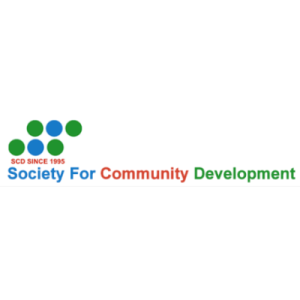 Society for Community Development (SCD) 2009 Report Card, Achievements, Lessons and Challenges
Society for Community Development (SCD) 2009 Report Card, Achievements, Lessons and Challenges
ICAS in 2009 through desk review, compiled report card of SCD comprising key achievements, lessons and challenges for the purpose advocacy and stakeholder dissemination.
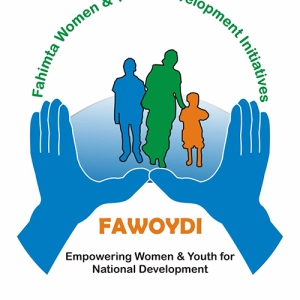 September 2008: RAHAMA Strategic Thinking Retreat
September 2008: RAHAMA Strategic Thinking Retreat
ICAS designed and implemented a 5-day strategic thinking session hinged on Strategic Development Framework and Organisational Development Models leading to the preparation of a 5-year strategic plan of Action for FAHIMTA. The strategic plan of action comprises of clarification of organisational vision, mission and core values and development of results framework and operational plan.

